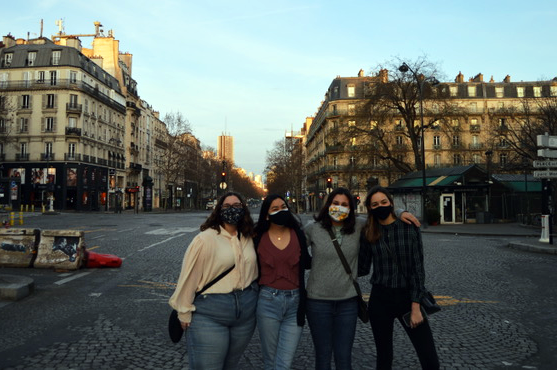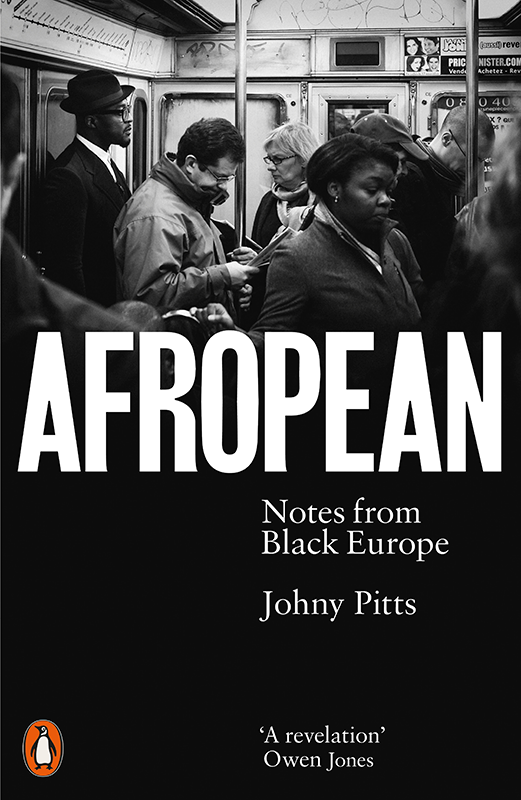Having Lived vs. Having Been Somewhere: A Reflection

Note from Professor Elena Albarrán: This semester, students of HST 296 World History since 1945, have reflected on their own European travel in historical context, as they come to see themselves as agents of our own historical moment in 2021. Last week, students were asked to think about the multiple meanings of human mobility by pondering the differences between Being, Staying, Visiting, and Living in a place. They supplemented their personal travelogues by engaging with the travel narrative Afropean: Notes from Black Europe by Johny Pitts (Penguin 2019), which explores the comparative dynamics of race relations across the continent in historical context.
by MUDEC student Katie Johnston
 It feels kind of unreal that we've been in Luxembourg for just over a month now. In that month, I have become comfortable with the everyday things that felt a little overwhelming at the beginning, like navigating Luxembourgish transportation where everything is in French, going to Auchan (one of the local grocery stores), and going to the post office.
It feels kind of unreal that we've been in Luxembourg for just over a month now. In that month, I have become comfortable with the everyday things that felt a little overwhelming at the beginning, like navigating Luxembourgish transportation where everything is in French, going to Auchan (one of the local grocery stores), and going to the post office.
I think that the longer I stay here, the more I have to look for "foreign" things, but the more rewarding they are when I find them. The cobblestoned streets no longer classify as the "reward;" they are simply a part of the landscape. Instead, it's the stumbling stones that I notice for the first time, even though I've walked over them a million times; and finally learning why the bus stops, the names of which I always took at face value, are named what they are, that gives me a little jolt and reminds me that I'm in a foreign country. All of that to say that I think to have really lived somewhere, you need to have found a routine and allow small details to be the ones that make you change your thinking or see something differently.
Though most of my short weekend travel has been in Luxembourg, I still consider myself as only having been to those locations, where I feel like I live in Differdange. I say this because when I do short travel, it tends to have a focus on sightseeing and getting as much out of the weekend as possible. For instance, when my housemates and I had a picnic lunch in Paris last Sunday, I felt rushed and ate as quickly as possible, barely taking in the ambiance so that we could rush on to the next thing and maximize our time. In contrast, today, I was able to sleep in, take my time running errands, and have a leisurely picnic in the sun.
 I think too, though, that my experience of living here in Luxembourg and my definition of what it takes to go from having been somewhere to having lived somewhere is affected by the fact that I moved to a region that has a very similar culture to that of the United States. I am also surrounded constantly by fellow Americans in my house here and in the Château. I imagine that people that move to a region that is very culturally different would have a definition that is very different from my own.
I think too, though, that my experience of living here in Luxembourg and my definition of what it takes to go from having been somewhere to having lived somewhere is affected by the fact that I moved to a region that has a very similar culture to that of the United States. I am also surrounded constantly by fellow Americans in my house here and in the Château. I imagine that people that move to a region that is very culturally different would have a definition that is very different from my own.
For instance, in the Marseille and French Riviera chapters of Afropean, a book that explores the Black experience in Europe, or the Afropean experience as the author refers to it, I learned that James Baldwin had a home in the French Riviera that he moved to after the Civil Rights movement. I also learned that the time he lived there was spent trying to buy his house from his racist old-money French land-lady, drinking and doing drugs, and entertaining celebrities. The combination of external success and internal struggle makes me wonder if he ever felt like he lived there or if he, between being unable to own his home and being distant from a community of people that truly understood him and his culture, viewed it as simply a place that he was.
While I'm not sure that James Baldwin ever felt that he lived in a foreign place, I think that the early backpackers that we've read about in Backpack Ambassadors, a book that describes and examines the phenomenon of youth travel post World War II, would say that everywhere they've been, they've lived. I think particularly for those that participated in the 1968 revolutions across the globe; there would have been a feeling of being a part of something, finding your place and your people, and living like the locals do. I think that, coupled with the feeling of freedom that permeated youth travel at that time and the sheer number of young travelers, would be enough to make it feel like you had experienced a place as a local had, and just as I mentioned about my experience, I think that it would be the small things rather than the big ones that caught your eye.
To sum up, I think I would say that the experience of having lived vs. having been somewhere is unique to each person. I feel that I am somewhere in between a person like James Baldwin, who I think likely felt completely cut off from his culture, and early backpackers who were creating an entirely new culture. I am surrounded by people who share my American culture, but I don't feel the overwhelming euphoria and excitement that backpackers around the world did, simply because it no longer exists or if it does, exists in only very small spaces that I've yet to discover. There are parts of me that feel like I live here and parts that still feel like I am just a visitor.

